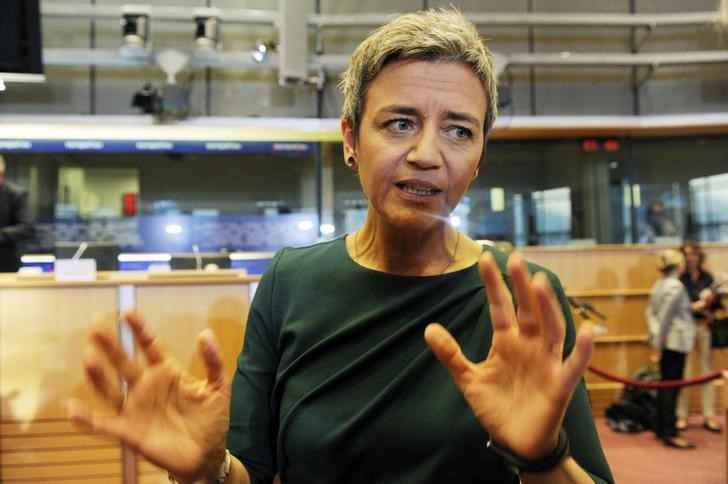By Foo Yun Chee and Rene Wagner
BERLIN (Reuters) - European Union regulators plan to investigate ecommerce to help remove barriers to cross-border trade in the 28-nation bloc, the EU's antitrust chief said, a move that may lead to action against companies which deliberately block online sales.
European Competition Commissioner Margrethe Vestager said she decided to launch the year-long inquiry because such hurdles were hampering the growth of online sales.
According to the European Commission, while one in two EU consumers shopped online last year, just 15 percent bought a product online in another EU country because of restrictions such as language, different laws and anti-competitive behaviour,
"It is high time to remove remaining barriers to ecommerce, which is a vital part of a true Digital Single Market in Europe," Vestager told reporters at a conference organised by the German competition authority on Thursday.
"We hope to get the preliminary results in mid-2016. It is a long wait but it reflects the scope of the inquiry," Vestager said. The EU competition authority plans to send questionnaires to all EU countries and a number of companies.
Vestager's announcement came a day after the Commission said it would unveil proposals in May to remove online sales barriers to promote growth in the digital economy..
It highlighted high delivery costs and differences in prices charged by online retailers for the same goods to consumers in different countries.
Vestager's inquiry aims to identify anti-competitive barriers and find ways to tackle them.
Vestager, whose staff this month raided a number of companies which sell consumer electrical and electronic products online on suspicion of illegal behaviour, said she was also investigating possible "geo-blocking" of online video games sales.
The latest action followed raids in December 2013 on Dutch company Philips, South Korean peer Samsung (LONDON:0593xq) and German retail chain Media Saturn.
Vestager, who is Danish, said the inquiry was not targeted at U.S. companies which are major players in ecommerce.
"It is not a question of nationality, it is a question of behaviour," she said.

The Commission can open cases against companies if the inquiry finds evidence of wrongdoing. Previous inquiries targeted the pharmaceutical and banking sectors, which led to cases and fines against several firms.